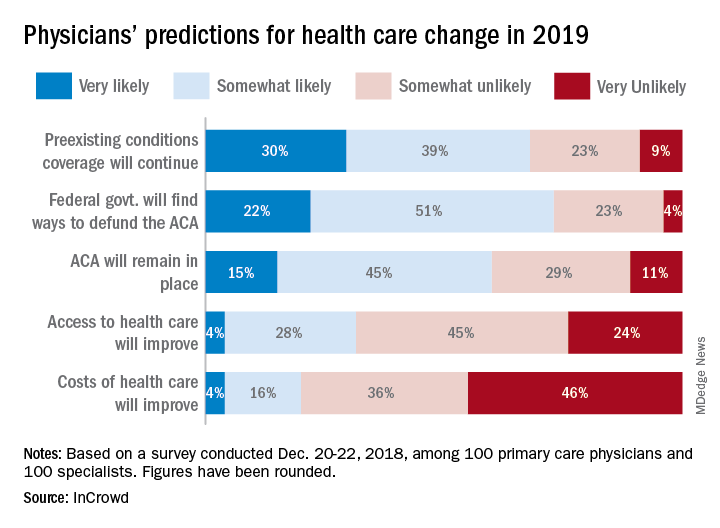but most predict that the Affordable Care Act will make it through the year despite government efforts to defund it, according to a survey by health care market research company InCrowd.
Over 80% of the 200 physicians surveyed Dec. 20-22, 2018, said that it was somewhat or very unlikely that health care costs would improve over the course of this year, and almost 70% expressed those opinions regarding improved access to care. More than 70% said that the federal government will find ways to defund the ACA, but 60% believe that it will remain in place and almost 70% said that coverage for preexisting conditions will continue, InCrowd reported. A minority of respondents (45%) predicted that the quality of health care was very likely or somewhat likely to improve in 2019.
A number of other issues were covered in the survey: 71% of physicians predicted that children up to age 26 years will be able to stay on their parents’ coverage, 69% expect the insurance mandate to be eliminated, 58% believe that mental health coverage will be allowed, and 56% said that it is unlikely for more states to expand Medicaid, according to data from the 100 primary care physicians and 100 specialists who responded to the InCrowd MicroSurvey.


